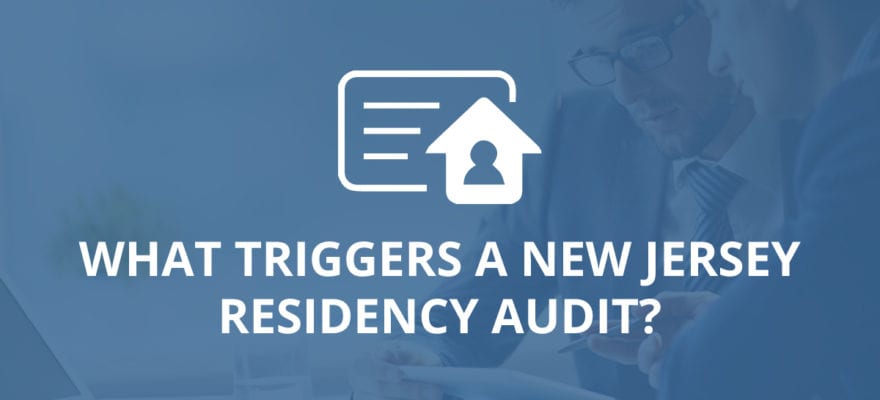The goal of a New Jersey residency audit is to determine whether you are accurately filing as a resident or nonresident of the state. If you are a resident, you are subject to state taxation on all of your worldwide income. In other words, if you own a rental property in the UK or take a temporary job abroad, you can expect to pay state taxes.
How Is Residency Determined?
In New Jersey, your residency is determined by where you are domiciled and where you maintained a permanent residence throughout the tax year. In this context, ‘domiciled’ means that your primary residence is here, even if you have homes in other states. If you have a New Jersey driver’s license and vehicle registration, your children go to school here, and you list your state address on your federal tax return, you will probably be considered a resident for audit purposes.
Even if you are not domiciled in New Jersey, you could be treated as a ‘statutory resident’ if you maintain a permanent home here and spent more than 183 days in the state. This means that you can be taxed on all of your income, even if it comes from out-of-state sources.
To be classified as a non-resident for tax purposes, you must meet the following three criteria:
- Your permanent home was not in New Jersey
- You maintained a permanent home in another state
- You spent no more than 30 days in New Jersey
What Can Trigger A New Jersey Residency Audit?
Residency audits are a state response to taxpayers changing their residence location while maintaining meaningful ties to their former state. In some cases, the change in location is designed to reduce state tax liability as opposed to making an actual domicile change.
During a New Jersey residency audit, the circumstances surrounding your move will be examined to determine whether you have in fact made the new state your permanent home. Red flags that can increase your likelihood of a residency audit include:
- Filing a nonresident return when you’ve filed a resident return for the preceding tax years
- Filing a nonresident return when you maintain a permanent home in New Jersey
- Not filing a return when you have a discernible connection to the state
If any of these scenarios apply to your present circumstances, consult a tax attorney to ensure that you are maintaining the right documentation in the event that you are selected for an audit.
What Happens During A New Jersey Residency Audit?
During a residency audit, the auditor will look at a number of factors that can help identify where you are actually domiciled. Most of them involve your lifestyle, such as:
- Do you treat your New Jersey residence as your home?
- Where are you employed?
- Where do you actively do business?
- Where do you spend most of your time?
- Where are the items you value most located?
- Where do your spouse and minor children live?
To answer these questions, the auditor will look at things like bank statements, cell phone records, travel documents (such as airline tickets and E-Z pass details) and even insurance riders, which can identify where your most prized possessions are located.
If you intend to move out of New Jersey but need guidance regarding how domicile factors work, an experienced tax law attorney can explain how the law applies and what you can do to cover all your bases in the event that you are selected for a state residency audit.
Speak with a New Jersey Tax Attorney
If you receive notice of a New Jersey residency audit, reach out to the experienced team at Paladini Law help. Attorney Brad Paladini has a Master of Laws in taxation and can protect your interests during the audit by presenting a well-rounded and persuasive case. If the audit results in a tax liability that you can’t afford to pay in full, he can negotiate an installment agreement that addresses the obligation and protects your assets. For more information or schedule a case review, please call 201-381-4472 or complete our online form.



